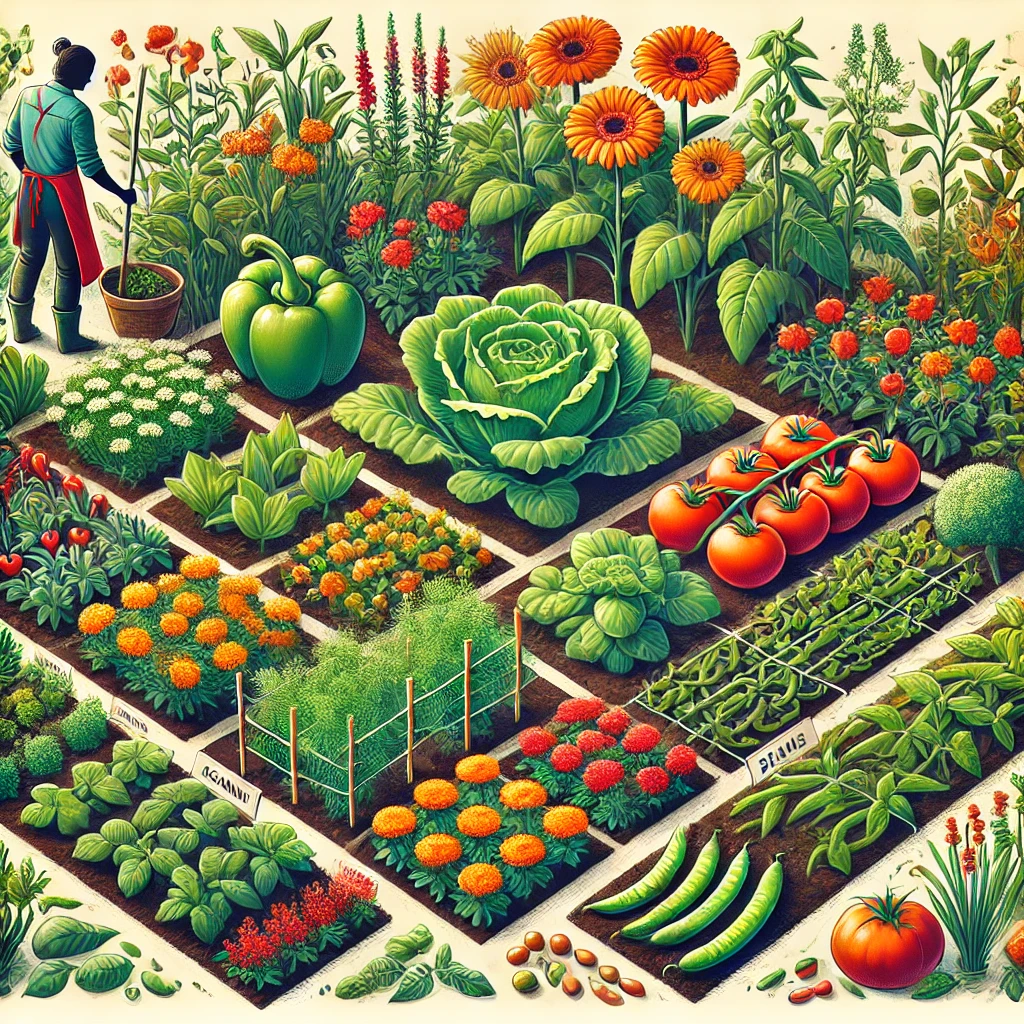Understanding the Benefits of Companion Planting
A long-standing gardening practice is companion planting, in which various plants are cultivated alongside one another to promote mutual growth. Certain plants emit natural compounds that deter pests, while other plants give the soil vital nutrients. For instance, beans add nitrogen to the soil, which is good for plants like cucumbers and tomatoes. Aphids and other pests are frequently deterred by planting marigolds. You can make a garden that is more resilient and productive by deliberately pairing plants that complement one another. This will encourage biodiversity and lessen the need for artificial fertilizers or pesticides.
Popular Companion Planting Combinations
In an organic garden, there are certain plant combinations that are especially effective together. Basil is a traditional partner for tomatoes because it enhances tomato flavor and deters pests. Similar to this, planting beans close to corn benefits both crops because the legumes fix nitrogen in the soil, which corn consumes extensively. Carrots and onions make another fantastic combination; the potent aroma of onions keeps carrot flies away, and the carrots help break up the soil so that the onion roots can grow. Try different combinations to see which produces healthier plants and a more colorful garden.
Maximizing Space with Companion Planting
Gardeners can make the most of their available space by using companion planting, which is one of its useful advantages. Smaller, shade-loving crops like spinach or lettuce can benefit from the natural shade provided by taller plants like corn or sunflowers. Herbs or squash that cover the ground below can be grown above trellises by vining plants like cucumbers or peas. This keeps the soil moist, discourages weeds, and boosts the yield of your garden. A thoughtfully chosen planting arrangement can result in a tidy, compact garden.
Avoiding Common Companion Planting Mistakes
Even though there are many advantages to companion planting, some plants should be kept apart to prevent competition or unfavorable interactions. For instance, since garlic and onions are alliums that can inhibit the growth of legumes, avoid planting beans close to them. In a similar vein, plants belonging to the brassica family (such as cabbage and broccoli) might not do well planted next to tomatoes. Before placing your plants in your garden, learn about their requirements and consider their compatibility. When you plan ahead, your plants will cooperate instead of fighting with one another for nutrients, water, and light.
